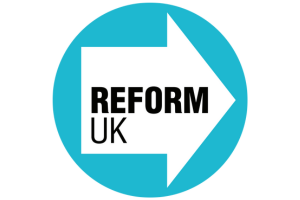
Analysis of Farage's party's hopes in Kent
Reform UK defied expectations at July’s general election by picking up five seats at Westminster and helping to lose dozens of Tories to the Labour Party.
But how will that support manifest itself at the Kent County Council elections next May? Simon Finlay looks at the lie of the land…
On a sunny August morning eleven years ago, Nigel Farage addressed a couple of dozen UKIP supporters in the function room of a Dover seafront hotel.
They were of an age – older, but not old. They hovered around the edges like awkward teenagers at a dance as Mr Farage said his piece.
It was the usual stuff, delivered with rhetorical panache, about the start of something great, being a thorn to the establishment’s side and political outsiders ready to break the mould.
At the time, the UKIP leader wasn’t wrong. It had become frighteningly popular and it was this rise, in part, which sparked Tory Prime Minister David Cameron’s promise on an in/out EU referendum.
Political observers with long memories are fond of recounting the party’s 2013 feat of securing 17 Kent County Council seats from a zero base, which somewhat reflected the prevailing winds of the time.
UKIP became the official opposition to the Tories at Kent County Council but lost the lot in 2017 and all but disappeared thereafter.
Up at the Detling Kent Showgrounds’ vast exhibition hall in 2019, as the Brexit Party riled itself up for its push before a general election, the estimated crowd for Mr Farage was in the thousands.
Chairman Richard Tice opened the rally with a rousing speech before former Kent Conservative MP Ann Widdicombe, who had worked through fans congregated in the central aisle to gawp and shake hands, delivered a bravura performance which opened with the line: “Remember me?” Cue a paroxysm of unrestrained adulation from what is known as the “tribe”.
By the time Mr Farage strode across the stage like an American TV evangelist, minus the good book, the “tribe” was nearly delirious.
Of course, this was a time of celebration – the Brexit Party had won 29 seats in the European parliament.
Since then, the party has come and gone after the tortuous impasse post-departure from the EU…morphing once again into Reform UK three years ago.
Apart from Mr Farage as the common denominator, the only other constant is the “tribe”. These are the disciples of Nigel Paul Farage, according to a Reform UK activist.
In July, Reform UK candidates averaged almost 21% of the vote and marginally over 9,300 votes in each of the 18 Kent constituencies being contested, securing an enormous 168,000 votes.
The New Statesman’s ward by ward number crunching after the general election suggests the support for Reform UK in what could prove to be battlegrounds was closer to 25%.
The party knows the “tribe” is big in Kent.
However, the borough council election results in May – when only Maidstone and Tunbridge Wells were contested – would not necessarily bolster confidence.
It stood only a handful of candidates in about a third of the Maidstone wards, picking up a measly 3% of the vote.
But, crucially, this was before Mr Farage became leader of Reform UK and took five seats in parliament.
Antony Hook, leader of the Lib Dem group at County Hall, and a veteran of local, national and European elections, sounds a note of caution.
“People vote differently in different elections,” he says. “Despite our success, there was evidence of some of our vote going to the Tories and Labour in places and soft Tories coming to us. It was quite fluid, in that respect.
“From the (Reform UK) activists I spoke to during the general election campaign, I don’t think they seriously believed they would win any seat in Kent.
“So it is hard to predict what will happen to their vote next year but I imagine it will be the Conservatives, not us, who will be quite worried about Reform UK.”
Once elected, members of the “tribe” can be a querulous bunch and Mr Farage has a history of feuding, noted Robert Shrimsley in the Financial Times last month. Mr Hook was briefly an MEP at a time when the Brexit Party took 29 seats in the European Parliament with nearly a third of the vote to easily become the biggest group from the UK nations.
“When I was an MEP briefly, the Brexit Party members were always falling out and by Christmas some had even left it. There’s a consistent pattern that Nigel Farage falls out with people.”
How long will it be before rumours emerge of internal squabbles inside Reform UK, wonders Cllr Hook.
Local by-elections between now and next May could give an indication about how they might run a campaign, he said.
Reform UK will be hamstrung by a lack of local associations, activists and volunteers with no up-to-date databases detailing voter intentions.
A party activist admits there isn’t even a branch in Kent, much less an office, but the ambition is still to beat or match the KCC result in 2013.
“One can’t imagine the Tory brand will have recovered sufficiently by next May, so the position will not be dissimilar to the general election election. Make no mistake, Kent is an area of great interest to us but we realise there will have to be a clear strategy,” said the activist.
KCC divisions are significantly larger than district council wards, making the practical challenges more acute.
As one Labour activist confided: “It’s a problem for them.
“You need the data. You need boots on the ground. You need to know how to target voters and where they live. You need to know what the issues are.
“They might even choose a local person but that in itself is not enough. All they can do is rally behind slogans and get Nigel to drop in.”
Privately, some Labour supporters see Reform UK as a splitter of the right of centre vote in places they fancy picking up seats.
The parties are reluctant to identify the divisions they will be targeting ahead of next May or where the foot soldiers and resources will be deployed.
Dartford, Gravesham, the isles of Sheppey and Thanet, Dover, Folkestone, Ashford and Maidstone are all in play for Reform UK.
A Kent Reform UK activist said: “It could prove counterproductive to try and stand in all KCC divisions but rather aim the ammo at specific, winnable seats.
“If we can nick a few from the Tories and few from Labour, we might even end up with enough to make a difference.”
Cllr Hook says there are multiple pressures on the Conservatives.
One is that if the party lurches to the right, which former Thanet South MP Craig Mackinlay believes it might, then the soft Tory vote may drift to the Lib Dem centre left, he says.
The Greens have been hoovering up votes all over the place in recent years and, like the Lib Dems, fancy their chances in 2025 of becoming the biggest party in opposition. (Some Tories are happy to go Green, unhappy with the level of house building and raw sewage being dumped into the rivers and coastal waters.)
Privately, Tory councillors are worried that Reform UK will pull off the same trick as they did in the general election, of becoming the home of the disaffected Tory protest vote.
And the ruling group – with three-quarters of the 81 seats – will be fighting a campaign off the back of a massive programme of cutbacks to discretionary services due to a lack of government funding and soaring costs.
Pulling financial help for commissioned youth services, shedding jobs, selling County Hall and many other buildings and continued talk of closing tips and shutting libraries is not a cheerful menu to present to voters going into a re-election campaign.
Many established Conservative members are not standing again, making it harder for newbies to make their mark.
One senior Tory confided: “We’ll probably lose control of the council but whether Reform UK has anything to do with it, it’s hard to say.
“They’ll struggle to find a full slate of candidates but could prove a damned nuisance in certain areas.”
Mr Farage has already declared Reform is “coming for Labour” and it could prosper in those areas such as south and east Kent where the “tribe” exists.
Some Tories are hopeful that by next May, its core support will no longer feel the need to protest against them. If that is the case, said the Conservative observer, turnout and postal voting will be key.
One crude extrapolation of the general election result, if applied today at a KCC poll, would see the Tories shrink to just 17 seats, at least 23 short of what is needed to cling onto power.
“We need to hold our nerve,” said one Tory councillor, “Labour’s period of grace won’t last too long and, nationally, things may look very different next May. Plus, if Labour starts to squeeze the middle classes and refuses to fund local government properly, it’ll get the blame, not the Tories.
“For instance, the small boat crossings, which have put a strain on KCC in looking after children coming into the UK that way, will not be fixed despite all the Labour rhetoric about ‘smashing the gangs’. Our core vote may well have had time to reflect.”
County councillor Andrew Kennedy, a thoughtful and experienced Conservative election campaign manager, said that despite the worst election result in the party’s modern history, there is still a foundation on which to build.
“It’s wrong to think that Reform UK will only take Tory votes,” said Mr Kennedy. “I am not despondent but we are going to have to work harder than we ever have worked before.”
Perhaps the biggest threat is that Reform UK will represent the ‘none of the above’ option on the ballot paper.
Another Conservative councillor said: “There may be no appetite for the Tories by then but there might be no appetite for Labour either, so Reform UK may be in the right place to prosper.”

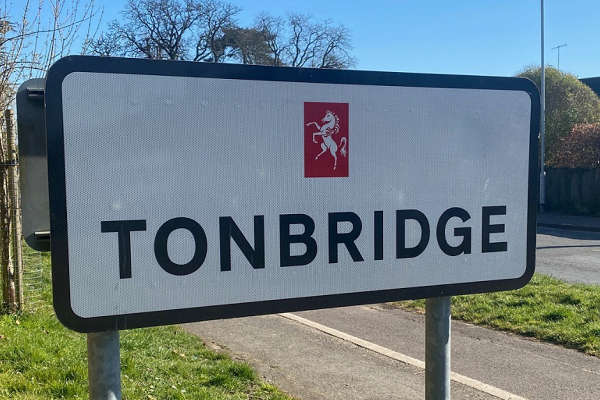 Tonbridge is set to get it's own Town Council
Tonbridge is set to get it's own Town Council
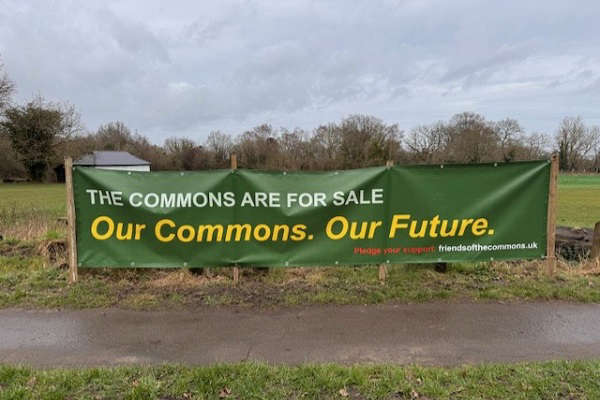 Campaign to save Tunbridge Wells & Rusthall Commons
Campaign to save Tunbridge Wells & Rusthall Commons
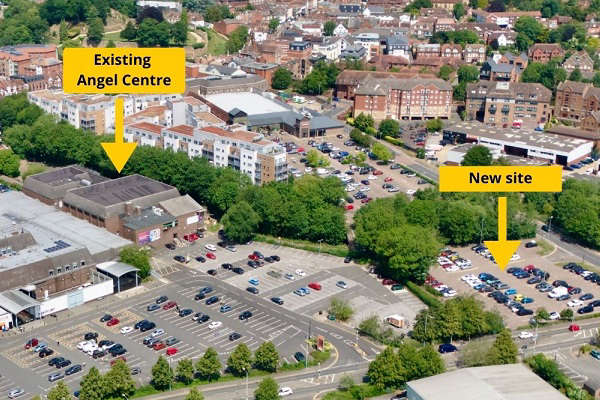 Design Plans for new Angel Centre in Tonbridge
Design Plans for new Angel Centre in Tonbridge
 Tunbridge Wells & Rusthall Common - For Sale
Tunbridge Wells & Rusthall Common - For Sale
 10,000 Electric Vehicle Chargers Coming To Kent
10,000 Electric Vehicle Chargers Coming To Kent
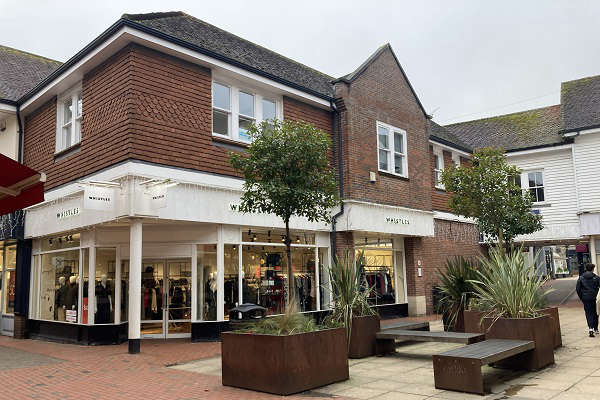 Blighs Meadow is Under New Management
Blighs Meadow is Under New Management
 HGV Scheme Launched In Goudhurst
HGV Scheme Launched In Goudhurst
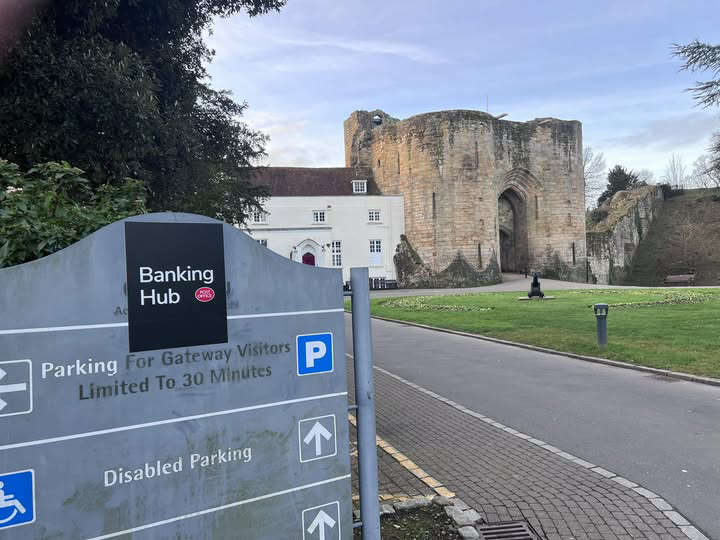 Tonbridge Banking Hub
Tonbridge Banking Hub




